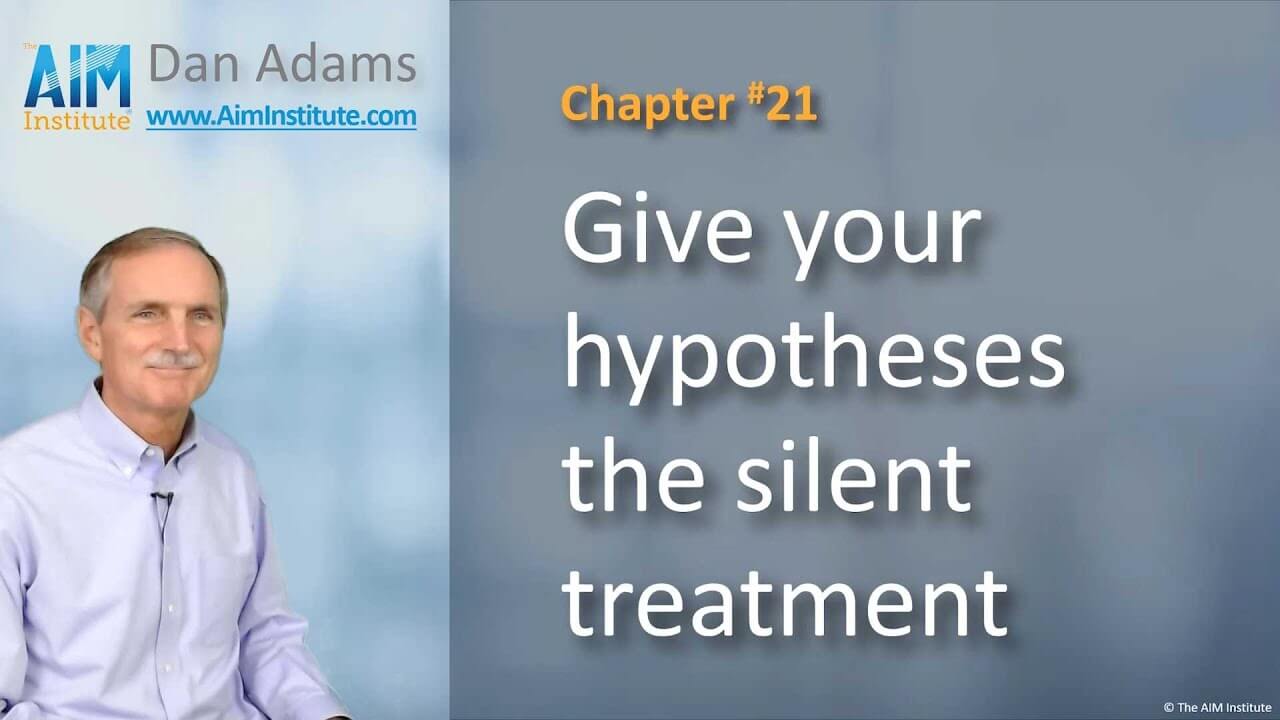B2B Organic Growth Series: Chapter #21
Give your hypotheses the silent treatment

Subscribe to the series. Get 50 free videos, sent daily or weekly.
It’s OK to have a cool hypothesis, concept, or technology, but test it “silently”: Focus on customer outcomes in interviews, and later check if your hypothesis addresses them.
b2bgrowth.video/21 Video length [2:26]
Transcript of Chapter 21
Ask someone if your jeans fit OK, and they’ll probably tell you what you want to hear, right? Same if you ask customers for feedback on your new product concept. But then you’ll spend a fortune on R&D because “everyone loved our idea.”
So what should you do if you have a product idea, hypothesis, or cool technology? You’ve got three choices. Door #1 is “technology push,” where you lead with your idea. Frankly, we’ve had decades of bad experience here.
Door #2 is to ignore your new technology. But we can all point to cool ideas—from DuPont’s Teflon to 3M’s Post-It notes—that were, well, really cool.
Let’s try Door #3. Here you test your idea silently. That is, you don’t mention your technology in the interview, but rather focus entirely on customers’ desired outcomes.
Imagine you had a new polymer that could make coatings scratch-resistant, fast-drying and sunlight-resistant. You interview wood coatings producers who say, “We wish our coatings were more scratch-resistant, fast-drying and sunlight-resistant.” Since this match was totally unprompted, you can now celebrate when you get back in your rental car.
But what if they wanted water resistant, non-slip, and high-gloss?… which your new technology does not do. Well, if your mandate is to serve this market, you look for technology that does satisfy these outcomes. But if your mandate is to find a home for your technology, you interview a different market segment like bridge coatings, and hope the outcomes they want are a good match.
In coming chapters, we’ll show you how to conduct interviews focused on customer-outcomes, which have these advantages:
You avoid confirmation bias, hearing what you want to hear. You hear more outcomes, beyond those you were hoping to hear. You probe to understand the value of outcomes, so you know how to price your product later. And you engage your customers.
After all, do brilliant conversationalists talk about their ideas? Or listen to your ideas?
Comments